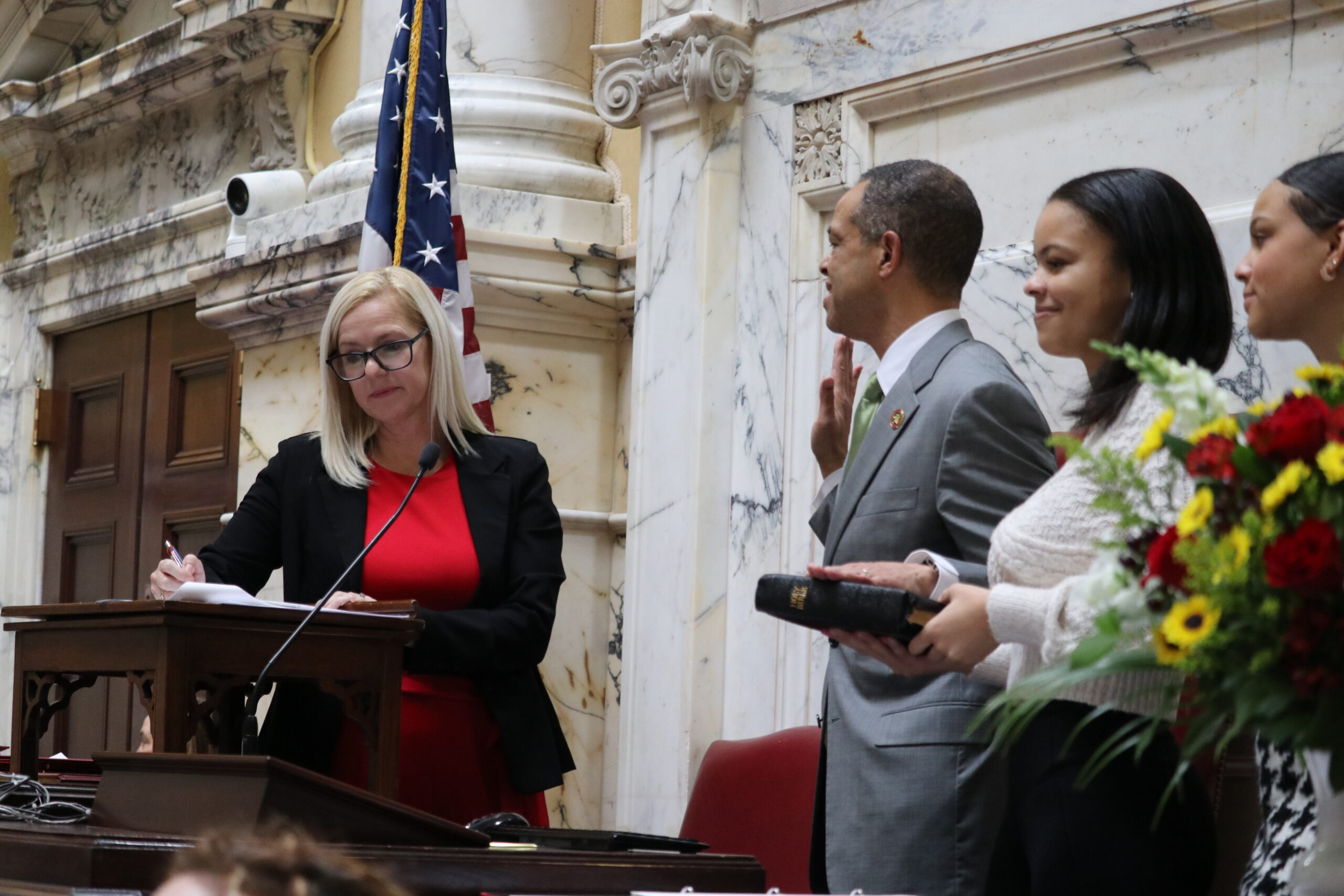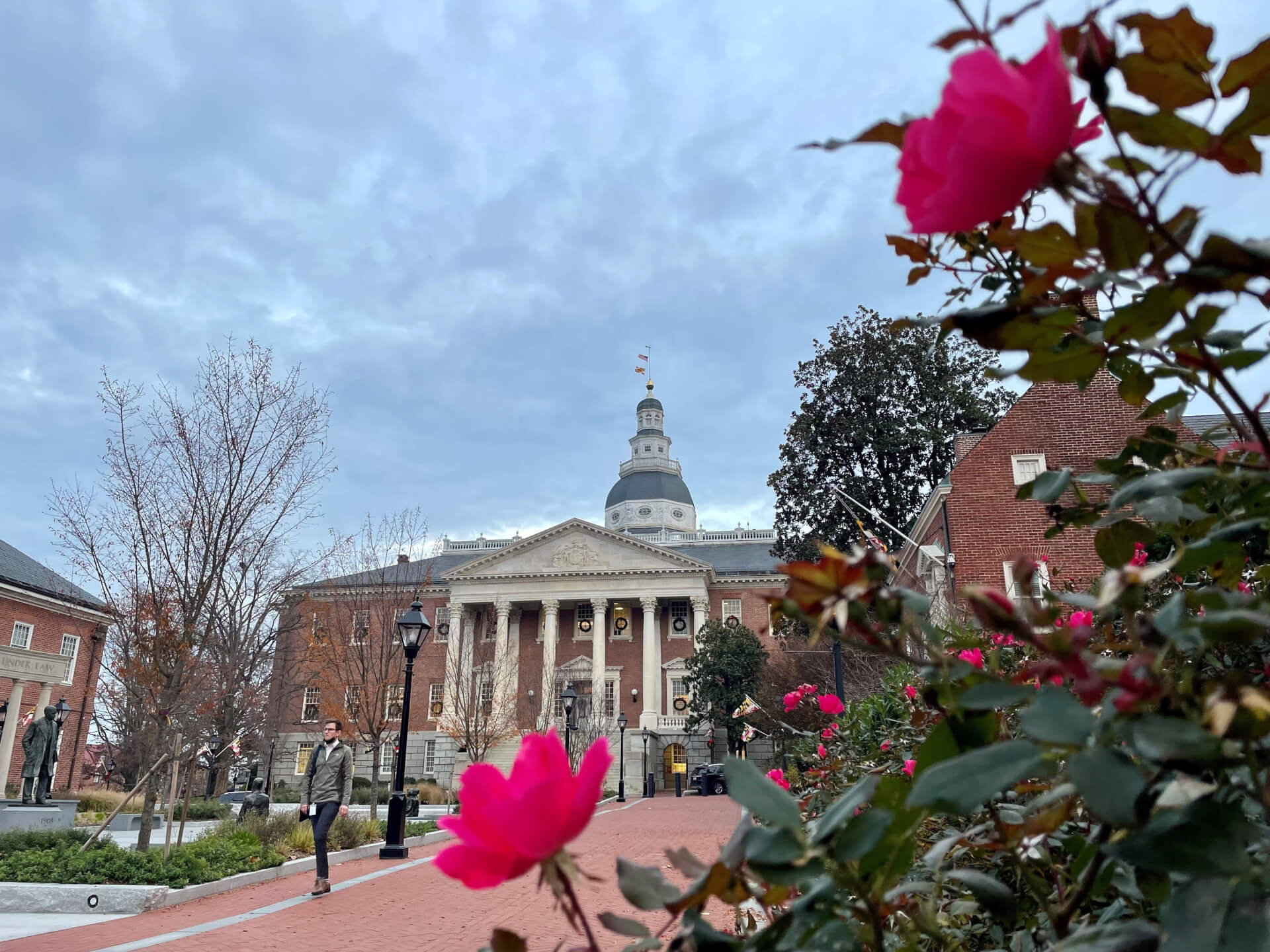Energy companies gear up for fight on electric regulation bill

As top lawmakers move to strengthen consumer protections for utility customers who shop for electricity suppliers, large national energy companies are countering with a poll showing an overwhelming majority of voters want to retain robust competition in the marketplace.
They are also charging that the proposed legislation would decimate the state’s 25-year-old competitive marketplace for electricity suppliers. And they’re arguing that recent controversy over Baltimore Gas & Electric rate increases illustrates the need for more checks on the utility companies.
The political skirmishing begins as powerful legislators gear up to make the first significant changes to the state’s deregulated electricity market since it was created by the General Assembly in 1999. That law enables energy suppliers to compete with monopoly utilities for the right to sell electricity to ratepayers. The utilities continue to distribute the energy, regardless of its origin.
But the utilities, which are among the most powerful lobbying entities in Annapolis, were given an advantage. If ratepayers choose not to shop for an electricity supplier, the utilities become the default energy supplier in a system that has become known as standard offer service.
About a fifth of the state’s electric customers buy power from suppliers rather than their utilities, preferring perceived savings, clean energy offers or other incentives. But the marketplace, fairly or not, has largely been defined by aggressive and sometimes predatory sales pitches that especially target low-income ratepayers with offers that can sound too good to be true and often result in higher rates than if the customers had stuck with standard offer service. Many of these energy supply packages are sold by door-to-door salespeople or in front of supermarkets or other retail outlets in poor neighborhoods.
It is those practices that have prompted Sen. Malcolm Augustine (D-Prince George’s) and Del. Brian M. Crosby (D-St Mary’s), the vice chair of the House Economic Matters Committee, to sponsor legislation that would add more guardrails to the competitive marketplace.
“We’re trying basically to strengthen the standards,” Augustine said in an interview. “We’re trying to make sure that people aren’t being taken advantage of, because unfortunately, that’s what’s happened.”
But opponents of the legislation are prepared to argue that the provisions of the 34-page bill will handcuff retail energy suppliers so severely that the state’s deregulated marketplace will effectively disappear.
“It probably could be reduced to one page, which says we’re trying to eliminate competitive choice,” said Travis Kavulla, vice president for regulatory policy at NRG Energy, one of the leading retail energy suppliers in the U.S. “…Overall, this bill is a market killer.”
Augustine’s legislation is Senate Bill 1, and while this SB 1 doesn’t have the political pop of some of its predecessors in prior General Assembly sessions — when legislative leaders have given bills that designation to represent their top priorities — it is a sign of the status Augustine, the Senate’s president pro tem, carries in the chamber. In the House, the identical legislation is House Bill 267.
The bill would change the state’s current regulatory scheme in several meaningful ways. For starters, it would require people who sell electricity service to obtain a state license, good for three years, and lays out guidelines for qualifying for the license and metes out punishment for those who break the rules. Individuals could be fined $25,000 for selling fraudulent service packages to unwitting consumers.
Augustine said these standards in the legislation would strengthen the competitive marketplace, in contrast to what some of the suppliers are arguing.
“The whole premise for a deregulated market was that a competitive market would provide savings to Marylanders,” he said. “If there are going to be savings, there’s no issue. I’m perfectly good with competition. But when you compete and you’re saying your competition is going to provide savings, you’ve got to do what you say you’re going to do.”
Another provision of the bill would allow utilities, which benefit from being the default electricity provider under the current system, to market their energy to consumers the way other companies do. The energy companies that have sold electricity to consumers already complain that they’re prevented from sending a separate bill to their customers — the energy sale is included on the monthly utility bill — and they argue that allowing utilities to market standard offer service would make the situation even worse.
“You find it very difficult to own the customer relationship,” Kavulla said.
But Augustine said that provision is necessary to give consumers a full picture of the entire marketplace, as they consider the menu of potential suppliers.
The bill would also set guidelines for the rates companies could charge for electric service, would aim to clarify that some electric suppliers are offering credits for clean energy rather than a guarantee of clean energy, and would also require the Maryland Public Service Commission, which regulates utilities, to hire more staff to police the activities of the retail companies.
Just last week, the commission announced a settlement with one electric and gas retailer, SFE Energy Maryland, for engaging in deceptive practices. Under the terms of the settlement, SFE will pay a $150,000 civil penalty, and must also refund $400,000 to certain customers who were enrolled by door-to-door marketing, along with those who paid early termination fees and those who received state utility bill assistance but paid more than their utility’s default rate.
Armed with new polling data, some of the largest players in the retail energy supply market are prepared to fight the Augustine-Crosby legislation on the basic premise that it takes away consumer choice — and say that’s the very thing Marylanders want.
Choose Who You Use Maryland, a 501c4 advocacy organization that describes itself as a coalition of ratepayers and electric suppliers, last week released its second poll in half a year showing strong support for competition in the electricity marketplace. The first was taken late last spring by Gonzales Research and Media Services, a Maryland-based polling firm. The latest was conducted between Dec. 6 and 11 by Normington, Petts & Associates, a national polling firm that has worked for several prominent Maryland Democrats. The poll of 600 registered voters had a 4-point margin of error.
Among the poll results:
- 68% of respondents said they were aware of the current law that allows for energy choice, and 79% said they favor it;
- Support for the concept of energy choice was consistent across age, regional, and party identification demographic groups, though college graduates and voters between the ages of 45 and 59 were more supportive;
- 82% said they favored a competitive market after hearing arguments touting its benefits;
- 66% of voters said they oppose repealing the current law that deregulated the electricity marketplace, and the number increased to 70% after voters heard arguments for and against repealing the system;
- 61% of the survey respondents said they are less likely to vote for policymakers who vote to repeal the current law;
- 64% of voters said they find the idea of purchasing electricity supply from a retail provider appealing.
Additionally, the poll found that voters agreed with a range of offered reasons for keeping energy choice. Among them:
- 87% said they want the freedom to shop for and choose an energy provider;
- 75% said they do not want a monopoly on electricity supply;
- 73% accepted the argument that competition could lead to lower prices;
- 72% said they do not want all utilities to act like BGE, which is seeking high rate increases;
- 60% said they believe choice will help the state meet its clean energy goals.
In a document accompanying the poll results, the Choose Who You Use coalition said the results will counter “misinformation from proponents of Maryland’s aging power monopoly” as the debate over the Crosby-Augustine legislation commences.
“While Senate Bill 1 may be popular with a handful of Annapolis insiders, it’s not what the people of Maryland want,” said Len Foxwell, a political consultant who is advising the coalition.
‘There’s going to be oversight’
Yet it’s clear that the big energy companies will be playing defense this legislative session. Last fall, Del. Adrian Boafo (D-Prince George’s), who serves with Crosby on the Economic Matters Committee, said he was contemplating a bill to expand the electricity marketplace. But in an interview last week, Boafo said he hadn’t decided how to proceed.
“We’re talking to our partners in the industry,” he said.
Boafo said one option would be to try to attach a few amendments to Crosby’s bill that could both expand the market and include robust consumer protections.
While the legislature did consider a bill in 2021 that would have dramatically expanded the marketplace, proponents considered it an opening salvo in a long-term campaign to update the deregulation law. It died without a vote in Economic Matters.
While bill hearings for their legislation have yet to be scheduled, Augustine and Crosby were bullish on its prospects. And Crosby was skeptical of the survey results.
“I don’t read too much into polls,” he said. “You can skew the questions to say anything you want.”
Crosby, like Augustine, insisted the new legislation isn’t designed to end competition in the electricity market.
“There’s going to be regulation,” he said. “There’s going to be oversight. There’s still standard offer service and free market principles.”




 Creative Commons Attribution
Creative Commons Attribution